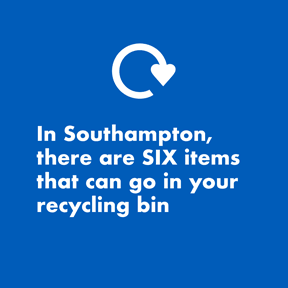Household food and drink waste analysis to take place
Southampton City Council’s waste and recycling service are joining forces with WRAP (Waste and Resources Action Programme) and partner agency Resource Futures to carry out a food waste survey of up to 3,000 households

Starting early in the New Year, staff members from Resource Futures will visit households across the city to ask residents to complete the survey. As part of this process they will also be asking 150 households to give their permission for the food waste content in their bins to be analysed. Households from all areas of the city will be approached, to ensure a diverse range of dwellings are represented.
The findings from the survey will provide more information about food that is thrown away and will help to better understand behaviours around food and drink and how they have changed over recent years.
Employees from Resource Futures who are visiting households will have official documentation with them to prove their identities and to gain consent from the households that are asked to be involved with the analysis of the food waste content of their waste collection. Households that take part in the survey or waste analysis programme will not be identified in any way and can withdraw from the study at any time. Following analysis waste will be disposed of as usual.
Dave Tyrie, Head of City Services said: “The data gathered will help us plan for the future waste collection changes that will come into effect with the Environment Act. It’ll enable us to model food waste collection rounds and look at the collection methods that will be most effective. It also supports the aims of the waste improvement action plan.”
Cabinet Member for Customers Service and Transformation, Councillor Rob Harwood said: “We’ll be able to see which areas in the city maybe need some extra support with regards to managing their food waste, specifically aiming to reduce the amount that is going to waste. It will allow us to target engagement work and communication campaigns, to help drive behaviour change.”


